When ODUMODUBLVCK, a Nigerian rapper known for his gritty baritone, released the single Blood on the Dance Floor on 2023-10-04, the track instantly lit up streaming charts across Africa and the diaspora.
The song debuted as the headline single from his album EZIOKWU, a project rolled out through a three‑way partnership between ODUMODUBLVCK/NATIVE Records, Def Jam Recordings and its parent Universal Music Group Recordings, Inc.. A day‑long promotional push culminated in a glossy music video that premiered on October 6, 2023, two days after the audio drop.
Background: ODUMODUBLVCK’s Rise and the EZIOKWU Era
Born Tochukwu Ojogwu, ODUMODUBLVCK first broke through the Nigerian underground with the mixtape Baritone Streets in 2020. His signature blend of Igbo‑inflected cadences and street‑level storytelling earned him a loyal fanbase in Lagos, Abuja and Enugu. By early 2023, the artist had signed a joint venture with NATIVE Records, an imprint dedicated to amplifying African talent on a global stage. The label’s CEO, Tunji Balogun, oversaw A&R for the EZIOKWU project, positioning the album as a bridge between raw Nigerian hip‑hop and mainstream pop sensibilities.
Creation and Production of “Blood on the Dance Floor”
The track’s chemistry owes a lot to its three‑way collaboration. Rising voice Bloody Civilian contributed the haunting hook, while U.S‑based Nigerian rapper Wale closed the song with a verse that warns listeners to “bring a gun to the fight.” Production was handled by the duo JIMOHSOUNDZ (keyboards, recording engineer) and DEEPAHOLIQ (beat‑making, additional keyboards). Mixing engineer Ucee polished the low‑end, and mastering was performed by Oscar Lo Brutto, a veteran known for his work on chart‑topping afrobeats records.
According to the liner notes, the songwriting roster also included Emmanuel Olaoluwa Jimoh, Olubowale Victor Akintimehin (Wale’s legal name), Emoseh Khamofu and Thabo Satekge. The dense credit list reflects a modern, collaborative approach to hip‑hop songwriting that mirrors global pop practices.
Reception: Numbers, Reviews and Cultural Impact
Within weeks, the single amassed 11.7 million plays on Audiomack alone, racking up 110 000 likes, 2 660 re‑uploads and 75 600 playlist adds. The streaming surge pushed the track into the top‑five of Nigeria’s Hip‑Hop/Rap charts on both local radio and digital platforms. Critics were equally enthusiastic. The Native hailed the collaboration as “a perfect, carefree unison of gangster grit and catchy pop,” noting that ODUMODUBLVCK sounds “more polished than ever while never abandoning his signature rawness.” Bloody Civilian’s hook drew particular praise for delivering “irreverent swagger,” a nod to her earlier hit “How to Kill a Man.” As for Wale, reviewers highlighted his line about “bringing a gun” as a stark reminder of the artist’s longstanding dialogue with fame‑induced paranoia.
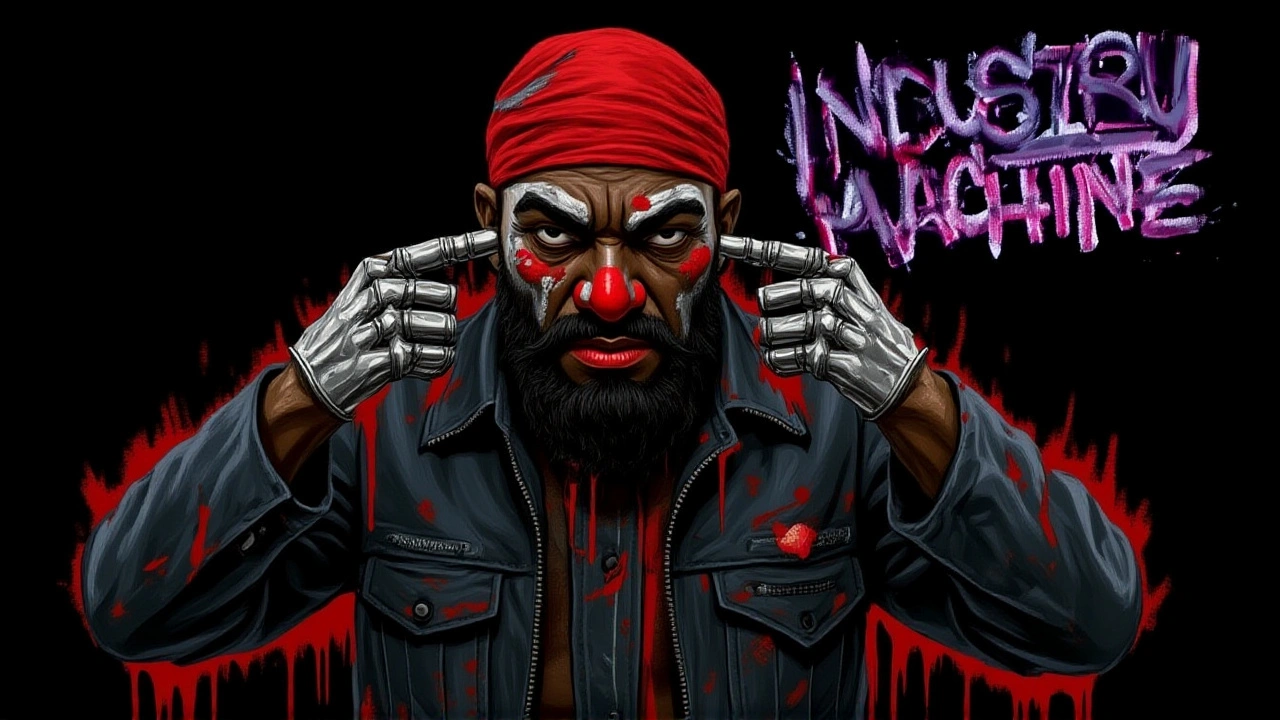
Voices From the Studio: What the Artists Said
In a post‑release interview, ODUMODUBLVCK explained that the song was meant to “capture the vibe of a club where every beat feels like a battle, but the dance floor is still a place to let loose.” He added that working with Wale “bridged two worlds” – the Lagos underground and the American diaspora – and that Bloody Civilian “brought the fire that makes the chorus unforgettable.”
Wale, speaking to a New York outlet, said his verse was “a nod to the street codes that still hold weight even when you’re on a global stage.” He also praised the production team for “building a sonic landscape that lets my flow sit comfortably without feeling forced.”
Impact on Nigerian Hip‑Hop and What Lies Ahead
“Blood on the Dance Floor” marks a turning point for Nigerian rap’s export potential. The song’s hybrid of Igbo‑inflected lyricism and Western trap elements shows how African artists can retain cultural authenticity while courting mainstream listeners. Industry insiders think the track could inspire more cross‑continent collaborations, especially as labels like Def Jam Recordings continue to invest in African talent pools.
Later in 2024, a “mixed version” of the track was released, featuring a stripped‑down acoustic bridge that highlighted ODUMODUBLVCK’s vocal range. The remix reignited streaming numbers, proving the song’s longevity and the artist’s knack for reinventing his own work.

Future Steps for ODUMODUBLVCK
With the EZIOKWU rollout now complete, the rapper is eyeing a summer tour across Europe and North America. Sources close to the artist say he’s also planning a collaboration with a UK grime MC, further signaling his intent to cement a global footprint.
Frequently Asked Questions
How did "Blood on the Dance Floor" perform on streaming platforms?
The single logged 11.7 million plays on Audiomack within its first month, alongside 110 000 likes and over 75 000 playlist placements, making it one of the most streamed Nigerian hip‑hop releases of 2023.
Who were the key producers behind the track?
Production was handled by JIMOHSOUNDZ and DEEPAHOLIQ, with JIMOHSOUNDZ also engineering the recording, Ucee mixing, and Oscar Lo Brutto mastering the final version.
What does the collaboration mean for Nigerian hip‑hop?
By pairing local talent with an internationally‑known Nigerian‑American rapper, the song showcases how African artists can maintain cultural roots while accessing global markets, potentially opening doors for more cross‑border projects.
Why was a mixed version released in 2024?
The mixed version introduced a softer acoustic bridge, highlighting ODUMODUBLVCK’s melodic range and extending the song’s lifespan on playlists that favor more chill, radio‑friendly cuts.
What are the next steps for ODUMODUBLVCK after EZIOKWU?
The artist is planning an international tour covering Europe and North America and is reportedly in talks for a UK grime collaboration, signaling a push to cement his global presence.

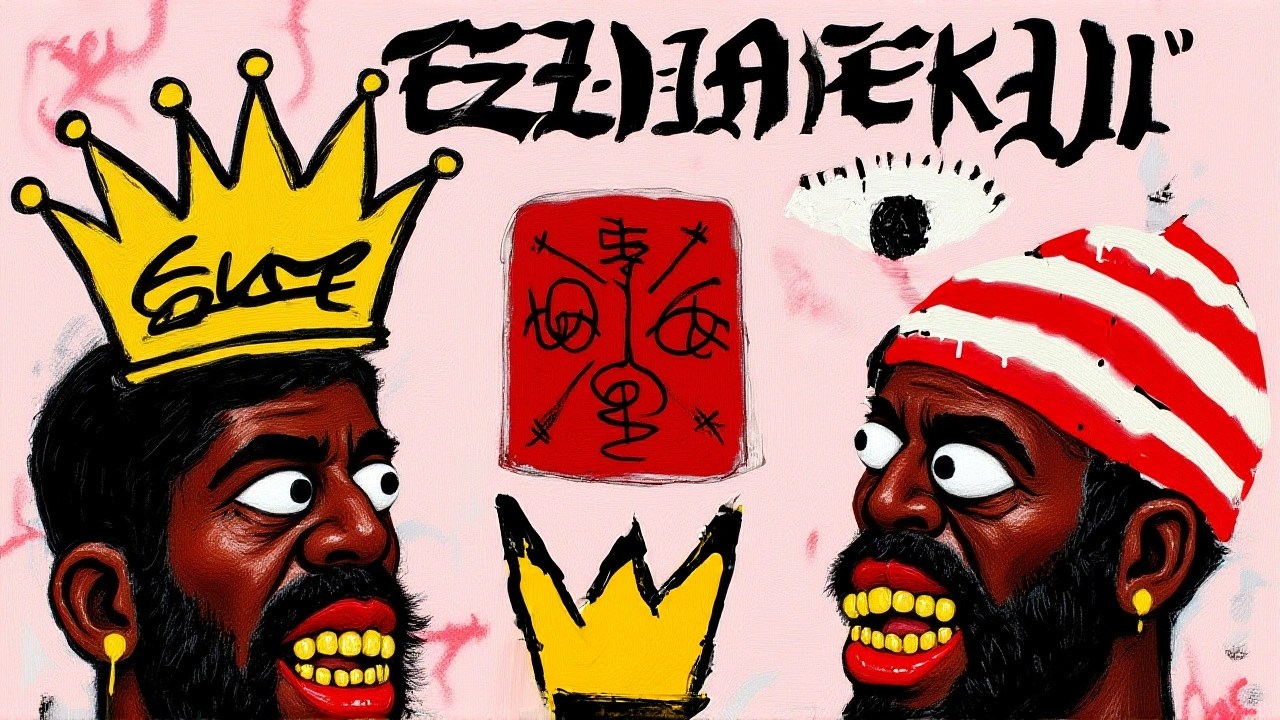

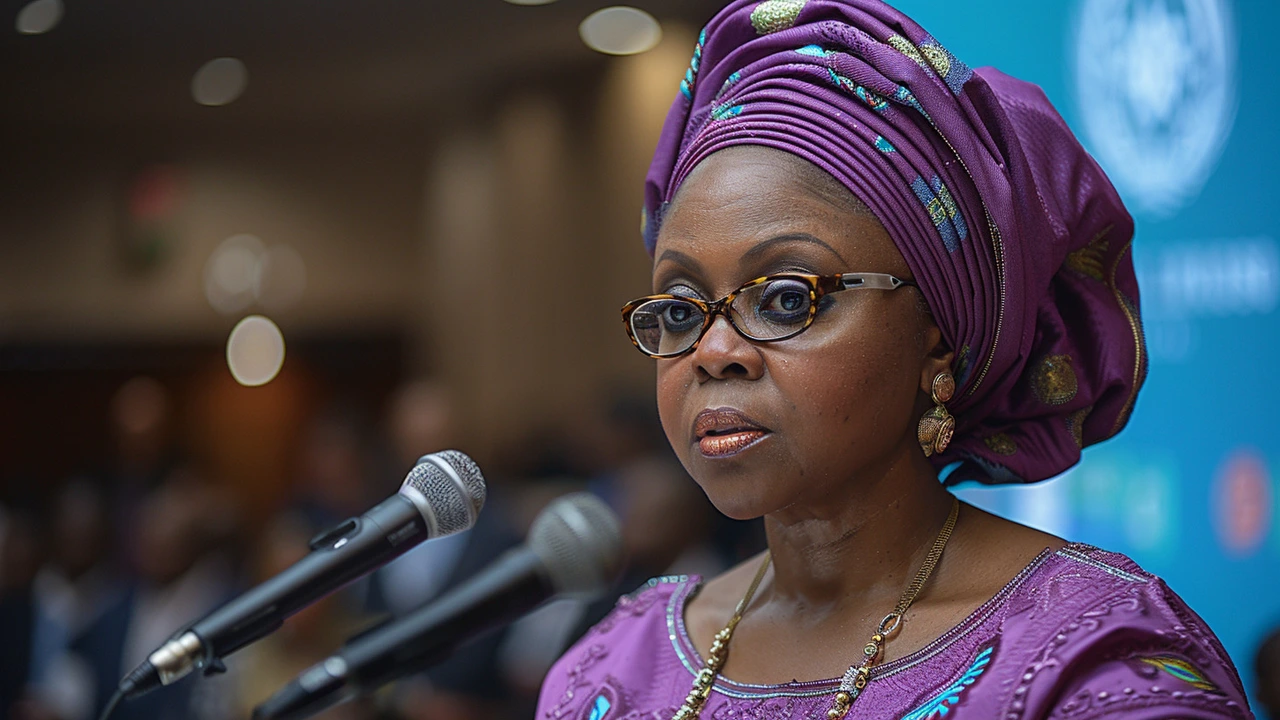
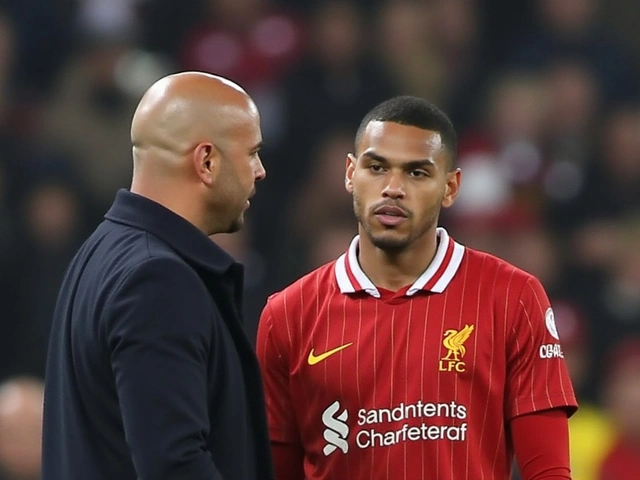
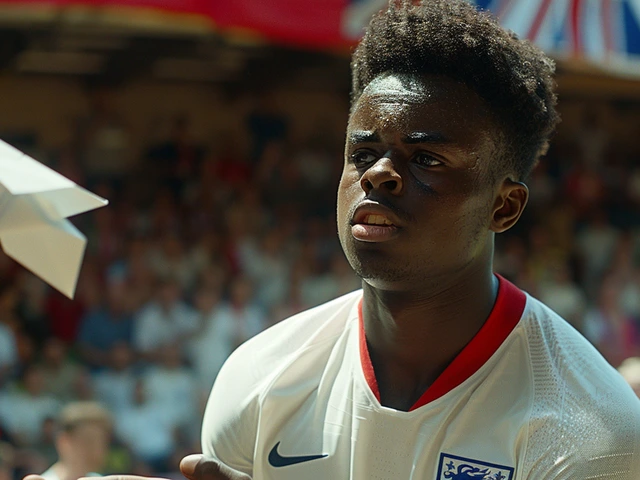
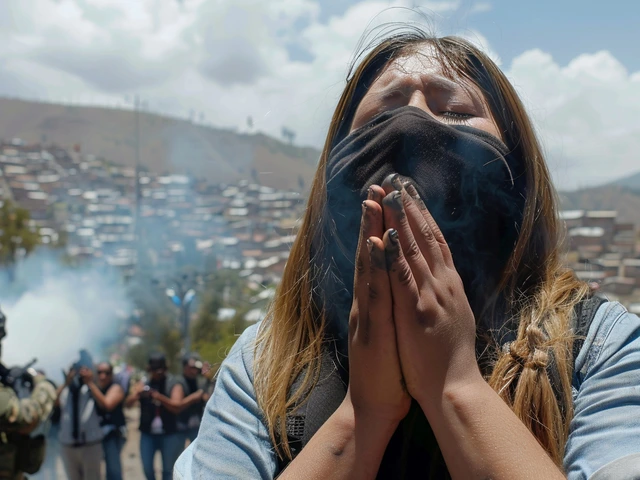

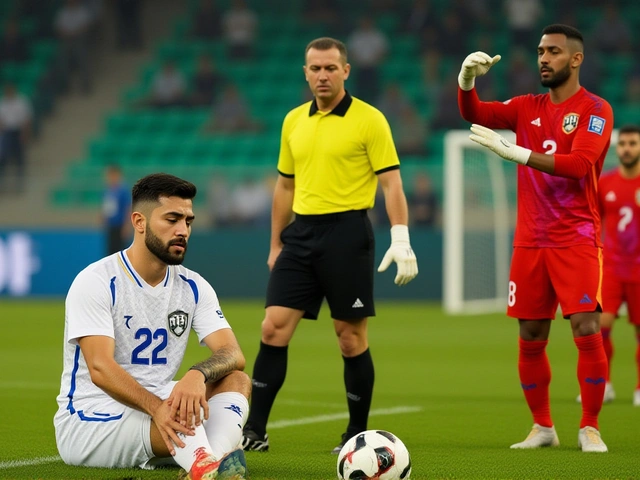
17 Comments
Looks solid, but could've hit harder 😂
The sonic architecture of "Blood on the Dance Floor" leverages a hybridized trap‑infused metrical framework, juxtaposing Igbo‑inflected cadences with Western beat‑programming conventions. Its multi‑layered harmonic texture underscores a strategic market positioning, priming cross‑regional algorithmic amplification. The lyrical content, while cohesive, borders on formulaic tropes prevalent in contemporary afrobeats commercialism. Nonetheless, the operational synergy between NATIVE Records and Def Jam establishes a robust precedent for future trans‑Atlantic collaborations.
Whoa, this track is an absolute firestorm! 🎉 From the moment the opening beat drops, you can feel the adrenaline surge through the speakers. ODUMODUBLVCK’s baritone cuts through the mix like a razor, while Bloody Civilian’s hook glimmers like neon on a midnight club floor. The collaboration with Wale adds that gritty edge that makes the whole thing feel like a cinematic showdown. I’m dancing, I’m vibing, and I’m already replaying it on loop. This isn’t just a song-it’s a movement, a cultural bridge, and a testament to how African hip‑hop is conquering global airwaves. Keep the bangers coming!
Absolutely, the track’s energy resonates across borders, and it’s refreshing to see such a genuine exchange of styles without diluting cultural roots.
Congratulations to ODUMODUBLVCK on achieving a milestone that underscores the potency of strategic partnerships in contemporary music. This achievement exemplifies meticulous curation, diligent production, and an unwavering commitment to artistic excellence.
Indeed, the project’s execution reflects a high degree of professionalism and artistic vision.
Seems like they’re just chasing numbers; the soul feels missing.
Nice breakdown! For anyone looking into the production credits, JIMOHSOUNDZ handled the keyboards and recording, DEEPAHOLIQ crafted the beat, and Ucee mixed the low‑end while Oscar Lo Brutto mastered the final cut.
i guess... might be good?? but i dont know..
The impact of "Blood on the Dance Floor" extends far beyond mere streaming metrics; it represents a pivotal moment in the transnational flow of hip‑hop culture. Firstly, the track’s production demonstrates a sophisticated blend of traditional African rhythmic patterns with contemporary trap percussion, creating a soundscape that feels both familiar and innovative. Secondly, the lyrical interplay between ODUMODUBLVCK and Wale bridges linguistic divides, inviting listeners from Lagos to New York to find common ground in shared narratives of struggle and aspiration. Thirdly, the involvement of Bloody Civilian adds a melodic hook that functions as a memorable anchor, ensuring the song’s replay value across diverse playlists. Moreover, the strategic tri‑partnership among NATIVE Records, Def Jam, and Universal underscores how major labels are increasingly recognizing the commercial viability of African talent. This partnership not only provides financial resources but also amplifies distribution channels, granting the artist access to markets previously out of reach. Additionally, the mixed version released in 2024 illustrates an adaptive marketing approach, allowing the track to pivot toward a more acoustic, radio‑friendly format without sacrificing its core identity. The acoustic bridge showcases ODUMODUBLVCK’s vocal versatility, proving that his artistry can transcend genre constraints. Furthermore, the song’s chart performance-penetrating the top five of Nigeria’s Hip‑Hop/Rap charts-serves as empirical evidence of its resonant appeal within the domestic market. Internationally, the track’s 11.7 million plays on Audiomack highlight its cross‑border traction and underscore the growing appetite for African hip‑hop among diaspora audiences. Critics have lauded the collaboration for its “carefree unison of gangster grit and catchy pop,” a sentiment that reflects a broader critical acceptance of hybridized sounds. In educational contexts, the track offers a case study in global musicology, illustrating how localized narratives can be reframed for worldwide consumption. Finally, the upcoming European and North American tour, alongside anticipated UK grime collaborations, signals a deliberate expansion strategy that could further cement the artist’s status as a global ambassador for Nigerian rap. In sum, this single is not merely a hit; it is a catalyst for ongoing cultural exchange and a blueprint for future Afro‑centric collaborations on the world stage.
Wow, a whole essay on a club banger 😂. Guess some people really take their hobbies seriously.
Oh sure, because nothing says “secret agenda” like a catchy hook and a flashy video. Next thing you know, the Illuminati will be dancing on it.
One must contend with the semiotic layering inherent in mainstream productions; the veneer of accessibility belies an intricate lattice of capitalist signifiers that perpetuate hegemonic narratives.
Honestly, the hype is overblown. Everyone’s just jumping on the bandwagon because it’s trending, not because it’s any good.
Respectfully, dismissing the track outright ignores its innovative production techniques and its role in expanding African hip‑hop’s global footprint.
i think its ok but its not that great i guess
Really? That’s the best you can say? Wow, talk about underwhelming criticism.